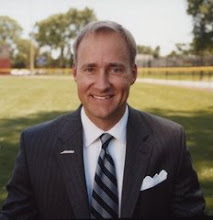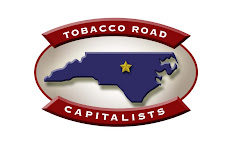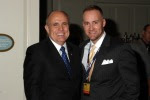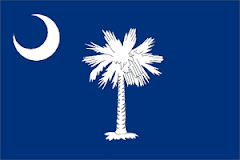
I have long admired many things about Nascar and the France Family that owns it. I think they are phenomenal at PR and very, very good at fan(customer) retention, among other things. Although starting very much through humble, boot strap efforts(like most successful businesses) 60 years ago, Nascar became quite sophisticated at linking drivers/corporate brands and fan affinity. With the help of strong television partners(ESPN really did the heavy lifting), great promotion-oriented business partners in the tracks(owned primarily by either SMI or the France Family through ISC) and a disciplined approach to honoring the traditional rules and spirit of William France, Sr; Nascar grew at a remarkable rate and became a legitimate, national sport. However, this editorial is not dedicated to "back-slapping" the guys and gals from Daytona. I'm here to share my thoughts on why Nascar is losing speed and how it can rev back up again. Though growing up in North Carolina, I'm not a true fan of the sport. I'm more of a "stick and ball" guy, but I've been to a few races and I know more than my fair share of passionate racing fans. What I know about the sport mostly comes from what I know about the business of sports after twenty years in the industry. In complete candor, I also must admit I did quite a bit of homework about eight years ago when the company I worked for was consulted to help an organization called TRAC(Team Racing Auto Circuit).
TRAC was one of the best sports business ideas I have seen, and trust me - I have seen a lot of them. I eventually became its COO for a period of time after helping the founders develop a strong business plan and secure capital. Don't just take my word for it, check with Carl Scheer, Robert Wussler, George Bodenheimer, Humpy Wheeler, Cale Yarborough, Ed Hinton, Joe Lecesse, Jay Klompmaker, Chuck Jarvie, Hank Jones, David Falk, Erik Spanberg, Bruton Smith, Charlie Bradshaw, Rick Flair, Bill Riley, etc... They were all there, in some form or fashion, when the start-up league was launched in 2001. For those of you who didn't here about it or don't remember it(probably most of you), here is the basic proposition: Combine the best attributes of traditional, full-fendered, oval track auto racing with the best practices and structure of major, professional sports leagues and you get the Team Racing Auto Circuit(TRAC). Unlike Nascar, the team owners were buying an equity stake in the league when they acquired their team. Unlike Nascar, the owners were business partners with the league and with the tracks, much like any NFL owner who manages and promotes his events but usually doesn't own his venue. Unlike Nascar, cost control for the owners was a major concern and creating a profitable, ever-increasing asset for the primary risk-taker was one of the league's major objectives. Unlike Nascar, which relies on individual driver affinity, TRAC tapped into the regional affinity of sports fans and racing fans by creating a local team, which consisted of three cars and three drivers and a point system that allowed there to be a team and individual champion for each race and the season. From an owner and corporate sponsor perspective, this was essential. As we have seen recently, drivers, owners and sponsors can quickly be put asunder and the fan equity remains with the driver. There is nothing wrong with that - the drivers operate in a free market system. They take huge risks and they should be rewarded commensurately. The problem is that the other interested business partners lose. Good businesses operate within the construct of multiple "win/win" alliances. When too many partners lose, the business can't survive. What happened to TRAC? Well, like many businesses, teams or families...failures are more often a product of internal forces than external ones.
So, why should anyone care about Nascar's business model? After all, aren't they virtually unopposed in the US motor sports industry with little competition and huge barriers to entry? The answer to the latter is, "yes." The answer to the former is simple. Over the past four years, Nascar television ratings have fallen 21%. Advertising expenditures on Nascar broadcasts were down 16% last year. Track attendance fell for the third straight year. Sponsorships of teams and the league are going away or cutting back significantly. Team owners are closing down shops, auctioning parts or looking for buyers at alarming rates. This is not a result of the weak economic conditions of today. This started many years ago. Because the business model is based on corporate sponsors footing the bill for operating costs, the biggest sponsors are aligning with the best drivers and the haves(big race teams) are clearly pulling way ahead of the have-nots. Owners don't have the proper diversity of revenue streams and the economic interests of the league and owners are not aligned. Owners need a share of the tickets and television. How does Nascar share revenue? The market needs to grow. It has stopped growing. It grew for a while in size. Through the opening of new tracks in new regions of the US, more people with similar demographic profiles came to the sport, but Nascar needs to grow in diversity. I'm talking about economic, educational, regional and ethnic diversity. To really grow, a business must make itself attractive to newer and wider audiences. Don't think of it as dividing the pie; think of it as making a bigger pie. Brian France is capable of doing this. I don't know him personally, but I'm told he is a very bright, forward-thinking executive. By chance, if you read this Brian, consider the Team-Racing concept. Tapping into regional fan loyalties, giving tracks more events, creating more compelling content for television partners and attracting well-capitalized, sports-owners will work. I'm not proposing that you scrap the current model and adopt 100% of TRAC's concept. That is not feasible or necessary. Nascar is still the best motor sports business. However, the time to make strategic moves is when you're on top. It's the difference between proactive and reactive. I do think adopting several of the concepts would be prudent. Perhaps you even consider creating a "developmental" league that lets you do some experimentation and refining? The tracks need the content. The owners need the upside. The sponsors need the ROI. Nascar needs to start growing again. You have plenty of smart people there in Nascar, but if you need a consultant...I'm open to discuss it.








